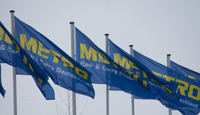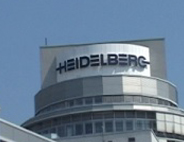VIPsight - 1st Edition 2019
COMPANIES
Wirecard AG: BaFin prohibits Short Positions in shares of Wirecard

The act is considered to be a measure under Art. 20 of the EU Short Selling Regulation, which applies in circumstances where there are adverse events or developments which constitute a serious threat to the financial stability or market confidence in Germany or in one or more other Member States, and the measure is necessary to address the threat. According to BaFin, events related to negative reports about Wirecard in the press resulted in uncertainty in the market, particularly with regard to the appropriate price determination for shares of Wirecard. BaFin also sees a risk that this uncertainty will increase and escalate into general market uncertainty.
METRO AG: Good-bye to Luxembourg
 METRO AG has decided to delist its shares from the official list of the Luxembourg Stock Exchange and to remove the shares from trading on the regulated market of the Luxembourg Stock Exchange with effect from March 1st, 2019.
METRO AG has decided to delist its shares from the official list of the Luxembourg Stock Exchange and to remove the shares from trading on the regulated market of the Luxembourg Stock Exchange with effect from March 1st, 2019.
In light of the low volume of METRO Shares being traded on the Luxembourg Stock Exchange since the listing of the METRO Shares in July 2017, METRO AG considered according to a news release that maintaining an admission to trading on the Luxembourg Stock Exchange offers no benefits to the shareholders and investors. This holds true in particular since all METRO Shares will continue to be listed going forward on the Prime Standard of the Frankfurt Stock Exchange. In addition to that concentrating trading admissions to the Frankfurt Stock Exchange will allow METRO AG to focus on one regulatory regime according to the release.
Deutsche Bank AG: BaFin expands special Representative´s Mandate
 As a measure to prevent money laundering and terrorist financing, BaFin ordered on February 15th that Deutsche Bank review its group-wide risk management process in the area of correspondence banking and adjust them where necessary.
As a measure to prevent money laundering and terrorist financing, BaFin ordered on February 15th that Deutsche Bank review its group-wide risk management process in the area of correspondence banking and adjust them where necessary.
In order to monitor the implementation of this measure, BaFin has expanded the mandate of the special representative appointed in an official notice. The special representative is to report on and assess the progress of the implementation.
Volkswagen AG: Enough Problems and to spare
 According to an article in the German magazine SPIEGEL, Volkswagen has filed a self-report about faulty fuel consumption of the sports car model Porsche 911 (construction years 2016 and 2017) with KBA in January. According to the article, VW also wants to inform the US authorities EPA and CARB.
According to an article in the German magazine SPIEGEL, Volkswagen has filed a self-report about faulty fuel consumption of the sports car model Porsche 911 (construction years 2016 and 2017) with KBA in January. According to the article, VW also wants to inform the US authorities EPA and CARB.
Further information as regards why the cars consume more gas and therefore emit more carbon dioxide than noted in the type approval was not available. However, tellerreport.com refers to a statement by the Volkswagen subsidiary Porsche: "Porsche has identified issues relating to individual so-called coasting tests during internal investigations, which are used to determine vehicle-specific values for chassis dynamometer tests, in this case, deviations in the determination of wind resistance values The facts are still under investigation, but it is a matter of course for Porsche, as a matter of course and an expression of its corporate culture, to actively inform the competent authorities and the company continues its internal investigations in close consultation with the authorities ."
Symrise AG: Distinguished Sustainability Management
For the sixth time in a row, Symrise AG has achieved Gold status with the sustainability rating agency EcoVadis. According to the rating, the company´s ecological, social and ethical responsibility is exemplary. EcoVadis uses 21 environmental, social, ethical and sustainability criteria in the supply chain to compare the performance of companies in different sectors. On this basis, the integration of essential sustainability criteria into the strategy, business model and management system can be evaluated comprehensively and systematically.
Wirecard AG: Turbulent Times in Singapore

The company reacted with strong statements, stressing that “Wirecard notes the recent inaccurate, misleading and defamatory media coverage by the Financial Times”, and that “no material compliance findings as to the governance and accounting practices … have resulted from our continuous internal and external audit services.” Furthermore, the company pointed out that before the publication of the article there had been increased short activities on the capital market side.
According to the article, an external law form commissioned by Wirecard prepared a preliminary report, which included the information that it “found evidence indicating “serious offences of forgery and/or falsification of accounts””. This document is supposed to have been the basis for an internal presentation to Wirecard´s most senior management on May 8, 2018.
Wirecard responded to the allegations in detail, highlighting several conspicuous features. Also, the shares have been subject to short attacks in the past. Hence, it is no surprise that some investors preferred to realize profits and step aside for a while.
Südzucker AG: Late Effects of the Deregulation of the European Sugar Market
 Amidst the background of a difficult market environment shaped by a historically low European sugar price level, Südzucker AG prepared a restructuring plan for its sugar segment. The plan contemplates - besides general cost reduction measures in the administration – capacity adaptations that could lead to factory closures with a reduction of the sugar production volume of up to 700,000 tons p.a. in order to streamline the capacities more alongside the European market demand.
Amidst the background of a difficult market environment shaped by a historically low European sugar price level, Südzucker AG prepared a restructuring plan for its sugar segment. The plan contemplates - besides general cost reduction measures in the administration – capacity adaptations that could lead to factory closures with a reduction of the sugar production volume of up to 700,000 tons p.a. in order to streamline the capacities more alongside the European market demand.
The regulation of the European sugar market created market massive imbalances, and it is not clear yet when and at which level the market correction phase will end. Therefore, it should not come as a surprise that the necessary adjustments on the production level following the deregulation are a painful experience.
Buhlmann's Corner
The responsibility is leaning on the corner
 Sometimes, if you look closely enough, you can briefly recognize the responsibility. But as soon as it takes shape, it's gone again. Someone has picked it up and taken it with them and, at best, transferred it to many, many ignorant people via an insurance policy. It is clear that a steep consulting fee will be found and paid for this. A little pain on the cost side is a must.
Sometimes, if you look closely enough, you can briefly recognize the responsibility. But as soon as it takes shape, it's gone again. Someone has picked it up and taken it with them and, at best, transferred it to many, many ignorant people via an insurance policy. It is clear that a steep consulting fee will be found and paid for this. A little pain on the cost side is a must.
If others pay to get rid of responsibility or parcel it out until it becomes so small that it is no longer recognizable, then I can do that too. Do I even have a choice? If I swim against the stream, I will have to explain why I wanted to keep responsibility with me. After all, responsibility can also turn into a wrong decision, at least that is logical.
Dealing with responsibility can also have subtle sides:
The incompetent Supervisory Board - e.g. at Thyssenkrupp AGM in 2018 - makes use of its right to organize and has the shareholders vote on the discharge of the entire body. The voting recommendation service can only decide to approve all or none of the members of the Supervisory Board. The responsibility of individual members of the Supervisory Board is not on the agenda.
It is good practice and ethics to offer spontaneously and generously an individual vote on each person at the Annual General Meeting. The (German) stock corporation law can react quite flexibly if a motion for individual voting is pending. The sly chairman of the meeting evaluated the concession as an "expression of the immeasurable shareholder confidence", the media world was astonished (HANDELSBLATT: "Anger of the powerless") and the voting result stated that everyone without exception was discharged by the majority of the shareholders.
However, the organisational reason for this result lies solely in the fact that the only possible instructions for or against the overall discharge were not questioned and adjusted during the meeting because they CAN’T be adjusted at all. The reason, then, is honestly to be found in the presence. It is not the shareholders who are on the list of participants, only the respective governors. Reasoned by the economies of scale for such action and coupled with the lack of a duty to discuss the adjustment of voting techniques with the issuer of the instructions, there is seldom more than one such proxy per country.
No one is rebelling, neither Ulrich Lehner, nor René Obermann and or any other member of the Supervisory Board who has not yet resigned.
If one were to ask the issuer of the instructions - the legal-beneficial one, so to speak - about it, he would certainly recognise the responsibility and think and consult committees ... until the vote is over.
At COMPASS it is on the agenda that, if the management asks the shareholders for the permission “to make donations to political organisations ... EU organisations", they will approve this. Asked by VIP whether this is appropriate at all and even more so shortly before the Brexit, the great Paul Steven Walsh answered with astonishing openness and naivety that such sponsoring is not intended, but that a lot can happen in a company and when it has happened .... Yes, exactly: then the management does not want to take over the responsibility and therefore it should be decided what nobody wants. Just in case somebody's not paying attention somewhere.
What do we learn?
If you plunge a company into great chaos you will also get relief for it. And if the highly remunerated managers no longer want to bear responsibility, then this responsibility should allow shareholders who are de facto incompetent to do something that no one actually wants.
Is there something leaning on the corner? Then please quickly mandate one of the largest and most expensive consultants, who will lead the dog to the corner and p....
Die Verantwortung lehnt an der Ecke
Manchmal kann man die Verantwortung, wenn man gut genug hinschaut, kurz erkennen. Doch sobald sie Formen annimmt – ist sie schwuppdiwupp auch schon wieder weg. Jemand hat sie aufgesammelt und mitgenommen und bestenfalls über eine Versicherung auf viele, viele Schultern Unwissender übertragen. Dass dafür ein stolzes Beraterhonorar gefunden und bezahlt wird, ist klar. Ein bisschen Schmerz auf der Kostenseite muss schon sein.
Wenn andere Verantwortung wegbezahlen oder so klein parzellieren können, dass sie nicht mehr erkennbar ist, dann darf ich das auch. Habe ich überhaupt eine Wahl? Wenn ich gegen den Strom schwimme, muss ich erklären, warum ich die Verantwortung bei mir halten wollte. Schließlich kann aus Verantwortung auch eine Fehlentscheidung werden, das ist zumindest denklogisch
Der Umgang mit Verantwortung kann auch spitzfindige Seiten haben:
Der unfähige Aufsichtsrat – wie z.B. 2018 bei thyssenkrupp - nutzt sein Organisationsrecht und lässt in der Hauptversammlung die Aktionäre über die Entlastung des gesamten Organs abstimmen. Eine Abstimmungsberatung nur entscheiden, alle oder keine Aufsichtsratsmitglieder entlasten. Die Verantwortung einzelner Mitglieder des Aufsichtsrates ist ja nicht auf der Tagesordnung.
Es entspricht dem guten Brauch und der ausgeübten Ethik, in der Hauptversammlung ebenso spontan wie großzügig auch eine Einzelabstimmung zu jeder Person anzubieten. Das (deutsche) Aktienrecht kann recht flexibel reagieren, wenn ein Antrag auf Einzelabstimmung im Raum steht. Der schlitzohrige Versammlungsleiter bewertete das Zugeständnis als “Ausdruck des unermesslichen Aktionärsvertrauens” wertet, die Medienwelt zeigt sich erstaunt, (HANDELSBLATT: “Zorn der Machtlosen”) und im Abstimmungsergebnis wird festgestellt, das alle ohne Ausnahme mit Volkskammermehrheit entlastet wurden.
Die organisatorische Ursache dieses Ergebnisses liegt aber allein darin begründet, dass die einzig möglichen Weisungen für oder gegen die Gesamtentlastung während der Versammlung nicht hinterfragt und angepasst wurden, weil sie gar nicht angepasst werden KÖNNEN. Die Ursache liegt also ehrlicherweise in der Präsenz. Nicht die Aktionäre stehen im Teilnehmerverzeichnis, sondern nur die jeweiligen Statthalter. Begründet in den Skalenerträgen für solches Tun und gepaart mit der fehlenden Pflicht, mit dem Weisungserteiler die Anpassung der Abstimmungstechnik zu diskutieren, gibt es meistens selten mehr als einen solchen Proxy pro Land.
Da lehnt sich keiner auf, weder Ulrich Lehner, noch Rene Obermann und oder ein anderes noch nicht zurückgetretenes Aufsichtsratsmitglied.
Würde man den Weisungserteiler – sozusagen der legal-beneficial – danach fragen, würde er die Verantwortung sicherlich erkennen und so lange nachdenken und Gremien befragen … bis die Abstimmung gelaufen ist.
Bei COMPASS steht auf der Agenda, dass die Aktionäre, wenn das Management sie darum bittet, “ donations to political organisations … EU organizations” machen zu dürfen, dies genehmigen. Von VIP befragt, ob so etwas überhaupt und erst recht so kurz vor dem Brexit sinnig und angemessen sei, antwortete der große Paul Steven Walsh mit erstaunlicher Offenheit und Naivität, dass solches Sponsoring zwar nicht gewollt sei, aber dass in einem Unternehmen nun einmal viel passieren könne und wenn es dann passiert ist …. Ja genau: dann wolle das Management DAFÜR die Verantwortung nicht übernehmen und deswegen soll beschlossen werden, was keiner will. Nur für den Fall das irgendwo einer nicht aufpasst.
Was lernen wir:
Stürzt man ein Unternehmen in großes Chaos, dann wird man auch dafür Entlastung erhalten. Und wenn die hochdotierten Verantwortlichen keine Verantwortung mehr tragen wollen, dann soll der für diese Verantwortung faktisch unfähige Aktionär etwas erlauben, was eigentlich keiner will.
Lehnt da was an der Ecke? Dann bitte ganz schnell einen und möglichst den größten und teuersten Berater mandatieren, der den Hund an die Ecke führt und p….
ACTIONS CORNER
OSRAM Licht AG: Talks with Bain Capital and Carlyle Group confirmed
A few days ahead of this year´s AGM OSRAM Licht AG confirmed market rumors that Bain Capital and Carlyle are considering a joint acquisition of up to 100% of the company´s shares. In this context, the company is currently in detailed discussions with the interested parties. However, OSRAM also pointed out that it still is possible that the discussions could fail.
The investors´ interest comes in a phase of uncertainty for the company, its employees and shareholders amid a poor business performance and questionable strategic decisions. At the AGM on February 19th, more than a quarter of the votes casted voted against the discharge of the CEO Olaf Berlien.
Siemens AG: European Commission prohibits combination of the Siemens and Alstom mobility businesses
 On September 26, 2017, Siemens and Alstom have signed a Memorandum of Understanding to combine Siemens' mobility business, including its rail traction drives business, with Alstom. The two businesses are considered to be largely complementary in terms of activities and geographies. Siemens would have received newly issued shares in the combined company, representing 50 percent of Alstom's share capital on a fully diluted basis.
On September 26, 2017, Siemens and Alstom have signed a Memorandum of Understanding to combine Siemens' mobility business, including its rail traction drives business, with Alstom. The two businesses are considered to be largely complementary in terms of activities and geographies. Siemens would have received newly issued shares in the combined company, representing 50 percent of Alstom's share capital on a fully diluted basis.
On February 6, 2019, the European Commission has announced its decision to prohibit the proposed combination of the Siemens and Alstom mobility businesses. As a result of this prohibition, the merger will not proceed.
Steinhoff International Holdings N.V.: Additional Oversight requested
Steinhoff received a petition by a group of shareholders for inquiry proceedings before the Enterprise Chamber of the Amsterdam Court of Appeal. The petition includes a request to appoint an investigator as well as an additional member of the supervisory board of the company whose will include oversight that information is provided adequately and in the context of any inquiry to be ordered by the Enterprise Chamber. The Enterprise Chamber has sent notices to interested parties with regards to these proceedings. A hearing is scheduled to take place on May 23rd, 2019.
Aurubis AG: Reviewing strategic alternatives for the Segment Flat Rolled Products
![]() Following the European Commission’s decision to veto the sale of Aurubis AG’s Segment Flat Rolled Products (FRP) to Wieland-Werke AG on February 6, 2019, Aurubis is reviewing strategic alternatives for the business division.
Following the European Commission’s decision to veto the sale of Aurubis AG’s Segment Flat Rolled Products (FRP) to Wieland-Werke AG on February 6, 2019, Aurubis is reviewing strategic alternatives for the business division.
In October of last year, Aurubis announced that the Commission had expressed concerns about approving the transaction during discussions. Hence, the decision did not come as a surprise to Aurubis. In a press release the company stated that already at that time, Aurubis identified additional potential options and will look at these more intensively now.
TLG Immobilien AG
On January 31st, 2019 TLG Immobilien informed about the withdrawal of a request to convene an Extraordinary Shareholders´ Meeting, which initially had been requested by Ouram Holding S.á.r.L. earlier that month.
In the initial request, Ouram proposed to put the revocation of three current members of the supervisory board and the election of four new members named by Ouram into this board on the agenda of the meeting.
According to a letter from the chairman of the supervisory board to the shareholders, the supervisory board had already commenced a search process to find suitable candidates to put forth for a shareholder vote at the regular AGM, which is scheduled for May 10, 2019th. By the end of 2018, one supervisory board member resigned from the board, while the chairman while the current chairman of the board will not seek reelection. According to the letter, Ouram had knowledge of this process and argued that an immediate resolution of its proposals would be required in March rather than waiting for the AGM in May, because the company needs to regain power to act in the short term.
The argument for the expedition of the shareholders meeting looks strange, and there is not even a hint why there should be a need to circumvent the minimum corporate governance requirements in order to “regain power” for the company.
RWE AG: Conversion of preferred Shares into common Shares planned
 The management board of RWE AG decided to propose to the AGM on May 3rd, 2019, as well as to a separate meeting of the owners of the preferred shares to be held directly after this AGM, to convert the preferred shares into common shares. The proposal envisages the mandatory conversion of all preferred shares into common shares on a 1:1 basis without a requirement for any additional payment by the holders of the preferred shares.
The management board of RWE AG decided to propose to the AGM on May 3rd, 2019, as well as to a separate meeting of the owners of the preferred shares to be held directly after this AGM, to convert the preferred shares into common shares. The proposal envisages the mandatory conversion of all preferred shares into common shares on a 1:1 basis without a requirement for any additional payment by the holders of the preferred shares.
In most instances, the purpose of preferred shares issued by German corporates is to limit the voting powers of the owners of these shares. Hence, the preferred shareholders are the holders of the common shares, while the preferred shares receive a symbolic compensation, for example in the form of a small extra dividend, etc.
People
Uniper SE: Takes a second look at Fortum
Uniper announced that the Chairman of the Supervisory Board, Bernhard Reutersberg, has reached an understanding with Fortum to initiate a fresh start to redefine the future partnership between the two companies. Fortum recently acquired 47 percent and is the largest shareholder in Uniper.
Fortum`s plan to establish a strategic business partnership with Uniper was not appreciated by Uniper´s management, which had its own strategic ambitions. As a consequence, discussions between the companies came to a standstill. The objective of the new initiative therefore is to determine, on the operational and strategic level, in which areas and how a partnership between the two companies adds value and to reach an understanding about this.
A working group, led on the Uniper side by the board members Keith Martin and Eckhardt Rümmler, will engage in discussions, without a predetermined outcome, about the areas the strategic partnership could encompass in order to create value for all shareholders.
At a meeting of the Uniper Supervisory Board's Executive Committee on February 5, 2019, the Committee and Uniper CEO Klaus Schäfer and Uniper CFO Christopher Delbrück mutually agreed on a termination of their respective employment contracts and their respective appointment as members of the Management Board with effect as of August 31, 2019.
Capital News
Commerzbank AG: ECB reduces capital requirements (SREP)
 The European Central Bank (ECB) reduced the bank-specific capital requirements (Pillar 2 requirement) for Commerzbank by 0.25 percentage points to 2.0%, following the 2018 Supervisory Review and Evaluation Process (SREP).
The European Central Bank (ECB) reduced the bank-specific capital requirements (Pillar 2 requirement) for Commerzbank by 0.25 percentage points to 2.0%, following the 2018 Supervisory Review and Evaluation Process (SREP).
The move is an indication for the progress the bank made in the improvement of its risk profile. At the same time, the German supervisory authority decided to keep the buffer for otherwise systemically important institutions (O-SII) at 1.0% for 2019, instead of raising it to 1.5% as has been originally indicated.
The pure Common Equity Tier 1 (CET 1) requirement for Commerzbank now stands at 10.11% for 2019. It consists of the Pillar 1 Minimum of 4.5%, the Pillar 2 requirement of 2.0%, the Capital Conservation Buffer of 2.5%, the buffer for otherwise systemically important institutions (OSII) of 1.0%, and the Countercyclical Capital Buffer of 0.11%. By the end of 2018, Commerzbank reported a CET1 ratio of 12.9%, while the banks´target CET1 to be achieved by the end of 2019 amounts to 12.75%.
VTG AG: Delisting!
The executive board of VTG has resolved to submit an application to withdraw the admission of VTG´s shares for trading in the regulated market of the Frankfurt Stock Exchange after an expected publication by its main shareholder Warwick Holding GmbH. Warwick owns 71 % of the outstanding shares of VTG. The two companies also entered into a delisting agreement. According to this agreement, Warwick has committed itself to support and secure a planned capital increase in an amount of EUR 290 million after the delisting becomes effective. The proceeds of this issue shall be used for refinancing purposes regarding outstanding hybrid bonds.
Furthermore, Warwick agreed to make a public tender offer for the outstanding VTG shares at the statutory minimum price of EUR 53. At the same time, Warwick made a commitment not to conclude a domination and/or profit and los transfer agreement until the conclusion of the AGM 2022, and that it will not seek a change in VTGs legal form until the conclusion of the AGM 2021.
Scout24 AG: …and here we go again!
Pulver BidCo GmbH made a public takeover offer for Scout24 at a price of EUR 46 per share in cash. The bidder is a holding company controlled by funds advised by Hellman & Friedman LLC and affiliates of The Blackstone Group L.P.
The offer implies an equity value of Scout24 of approximately EUR 4.9bn and represents a 24.4% premium on the 3-months-volume-weighted average share price of EUR 37.
The takeover is subject to a minimum acceptance threshold of 50% plus one share. Furthermore, the transaction is subject to a market MAC (no decline of the DAX by more than 25.5%) and the usual merger control clearance requirements. The CEO of Scout24, Tobias Hartmann, pointed out that Hellman & Friedman and Blackstone are known to Scout24 as long-term partners given their prior ownership and familiarity with the company.
DWS Group GmbH & Co. KGaA – Deutsche Bank in a nutshell

This is not good news for investors. However, in its outlook the company stressed the successful cost efficiency initiatives, which have been accelerated and are expected to further reduce the cost base in 2019.
Sounds familiar? Right, this looks like Deutsche Bank in a nutshell. And by the way, the somewhat nicer Q1, Q2 and Q 3 news releases can be found on the investor relations website (https://dws.com/en-kr/Our-Profile/ir/ir-news/ir-releases/), but not the Q4 release, which is only available via the press section (https://dws.com/en-kr/Our-Profile/media/media-releases/). Didn´t help, though… What is more, in case you should be interested to take a closer look at who is supervising this company´s steering wheel, just click on the imprint at the bottom of the page….
Heidelberger Druckmaschinen AG: Chinese Partner intends to acquire a strategic Stake
 On January 23rd, the management board of Heidelberger Druckmaschinen AG has signed an investment agreement with a strategic investor. According to Heidelberg, the Chinese company Masterwork Group Co., Ltd. Intends to acquire an 8.5 percent holding in Heidelberg via a cash capital increase.
On January 23rd, the management board of Heidelberger Druckmaschinen AG has signed an investment agreement with a strategic investor. According to Heidelberg, the Chinese company Masterwork Group Co., Ltd. Intends to acquire an 8.5 percent holding in Heidelberg via a cash capital increase.
The new shares shall be issued to Masterwork with an exclusion of shareholders´ subscription rights. Nonetheless, shareholders welcomed the move, since China´s largest manufacturer of die-cutters and hot-foil embossing machines is supposed to become a strategic anchor shareholder. The two companies already have a close manufacturing and sales partnership. Masterwork acquired Heidelbergs´s postpress packaging technologies in 2014 and is one of China´s leading postpress suppliers for packaging.















